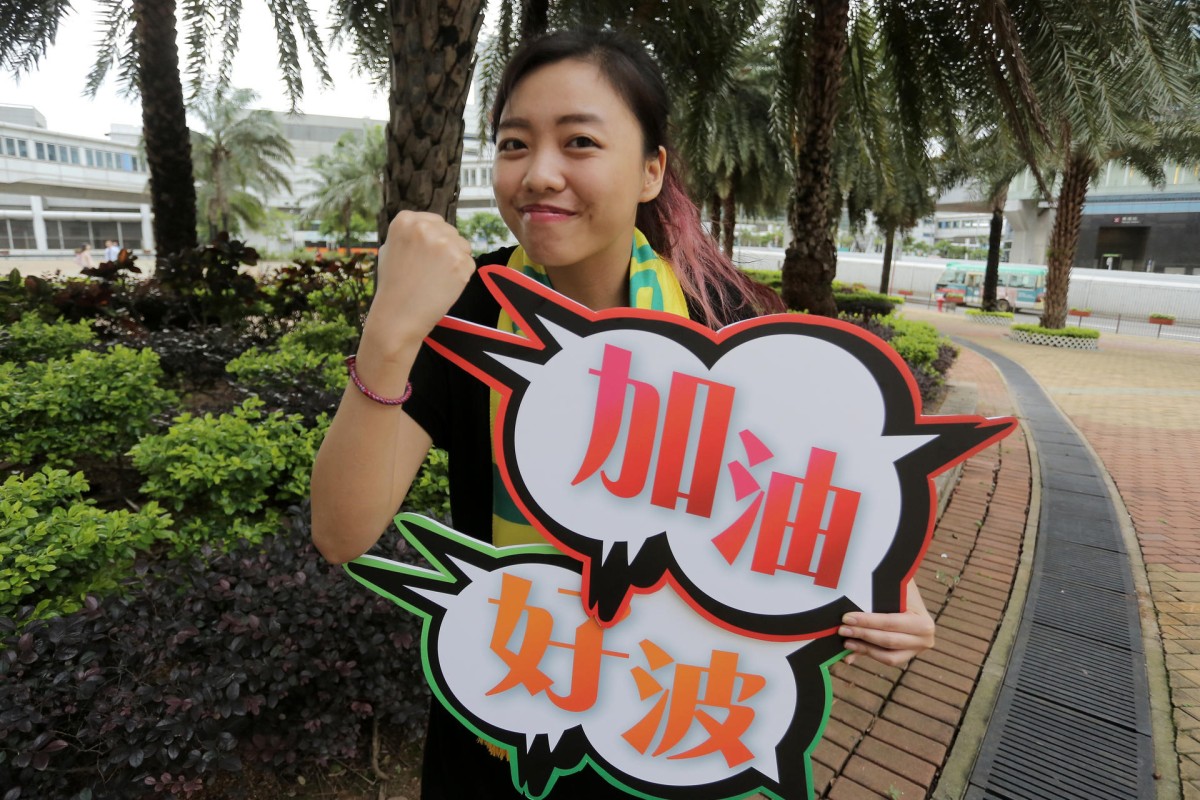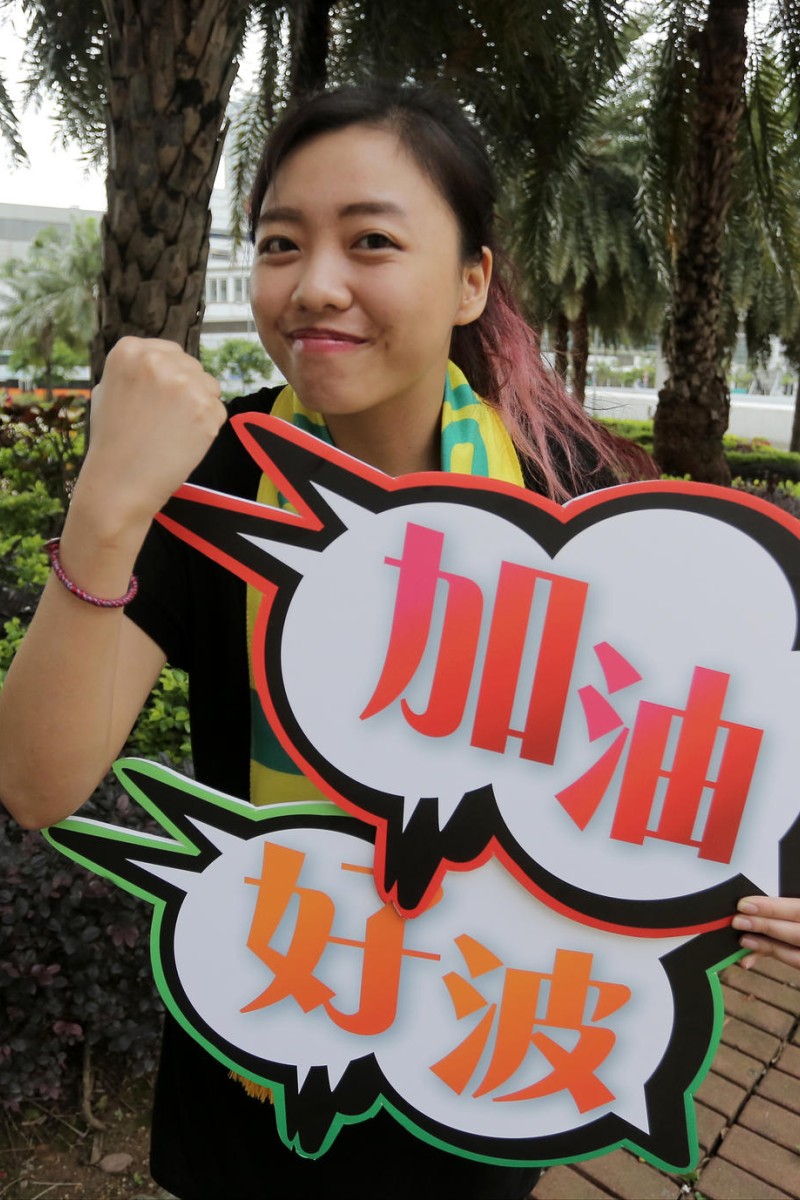 Ma Fan-yin helps deaf football fans follow the action.
Ma Fan-yin helps deaf football fans follow the action.Ma Fan-yin is a communicator. Whether it's for World Cup matches, her brother or strangers at a hospital, her talent for interpreting for the deaf changes people's lives.
Using her skills has been tiring during the World Cup, though. She interprets the commentary for games shown at Olympian City in Tai Kok Tsui. The mall wanted to help deaf football fans enjoy the tournament, so Ma and 15 other people who know sign language formed a team of volunteer sign-language commentators.
The matches in the group stage were at midnight, 3am and 6am, so for nearly three weeks, she has fought against heavy eyelids and arms to help out.
"It was really exhausting having to move my body non-stop for a 90-minute game," she says. "Each of us gets to take a 15-minute break after working for 15 minutes, but it was killing me."
The group went through rigorous training from professors at Chinese University to brush up their knowledge of hand signs related to football. "It was tough. I knew nothing about the game," Ma says. "I found it hard to understand some of the rules; offside, for example, is a really complicated concept for me.
"But the teachers were really helpful, and their lively description of the game has increased my interest. Now I consider myself a football fan."
Ma began learning sign language because her elder brother is deaf. "I was eight when my brother started teaching me sign language," she says. "No one in particular urged me to learn it, but I thought it was necessary because I wanted to help my mother and my brother to have a better relationship. They often argue because they don't understand each other. When I can translate for them, most of the misunderstanding can be avoided."
Ma says, though, it's not easy. "My mother speaks the Chiu Chow dialect, I speak Cantonese and my brother uses sign language. I have to translate everything twice to get them to understand each other," she says.
It was Silence, a charity group that supports deaf people, that asked her to do the World Cup commentary. "I said yes immediately because I want to gain a more in-depth understanding of sign language," she says.
Although Ma works as a saleswoman, she is also studying for the exam organised by the Council of Social Services; she hopes to become a licensed sign language interpreter, because she already knows the effect they can have. She recalled one especially rewarding experience.
"I interpreted for a whole family that is deaf at a hospital. The children received funding from the government to have cochlear implants. Before meeting the doctor, the parents were reluctant to have the operation done on their children because they had heard of serious side-effects and were unwilling to do it," she says.
"But after meeting the doctor, I explained to them the benefits of the surgery. The parents were so happy that their children had a chance to lead normal lives, they burst into tears. Without the translation, the family would have lost a golden opportunity to enhance their children's lives.
"That's when I realised that a sign-language interpreter is a life changer."
